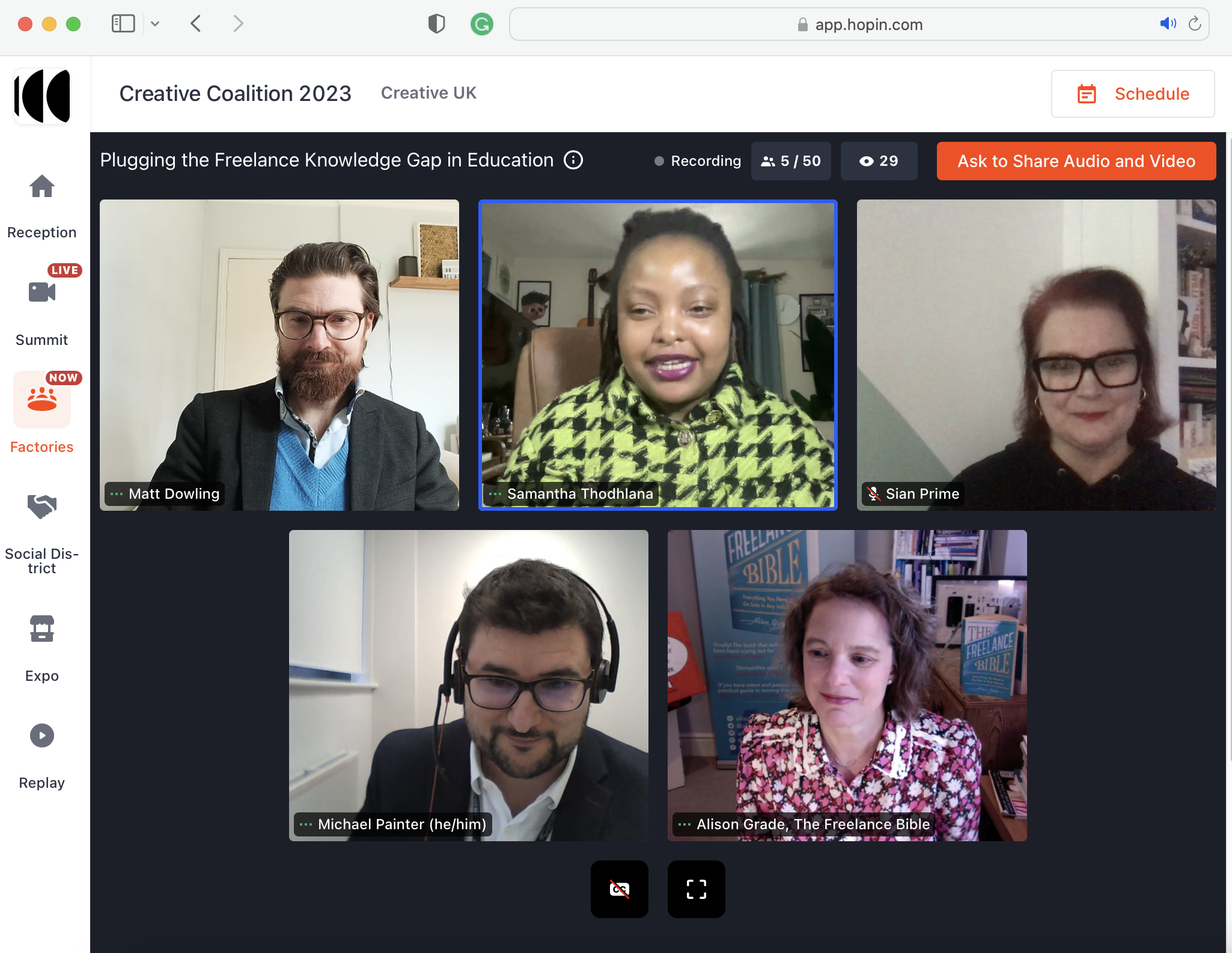Last Friday I had the pleasure of hosting a panel conversation at the Creative Coalition Festival to discuss this. It’s an event that The Freelance Bible has sponsored since it first started.
To help me navigate this tricky but important conversation I was joined by a brilliant panel of Siân Prime from Goldsmiths University, Matt Dowling from The Freelancer Club, Michael Painter, Principal at BOA Stage and Screen Production Academy and Sam Thodhlana a creative freelancer.
I started by asking what the problem is and it quickly became apparent that there were problems all the way along the chain.
Michael Painter explained that education policy from 4- 18 doesn’t recognise freelancing as a way of working. It recognises entrepreneurship and employment. Neither of which are often relevant to a creative industries career. The knock-on effect of this being that careers leaders and teachers don’t have much knowledge on what it means to have a freelance career and therefore they can’t share that with their pupils.
Sian Prime added in that the destinations statistics that universities measure don’t recognise and value freelancing as a successful outcome on graduation. This means that academics and careers advisors are also not incentivised to ensure their students understand what a freelance career entails.
Sam was very eloquent on her journey as a freelancer and that after university she knew she wanted to work for herself and thought the only way to achieve this was to set up a business with a group of friends. In line with Sian’s point freelancing had not been presented to her as an career option post university. Additionally, her parents didn’t know or understand freelancing either and therefore were not in a position to support her.
Matt Dowling spoke of the time it takes to get established as a freelancer, it averages at 18 months which leads many to give up, stop following their passions. This is a major issue for us in the Creative Industries where so much of the work is freelance. If it takes the average person 18 months to get established, then what great creative talent is falling by the wayside that we are missing?
These financial pressures coupled with the insecurity of freelancing mean that its more likely that those with access to ‘the bank of mum and dad’ can keep going. Precisely the opposite of the message the creative industries want to be sharing with young people that they are open an accessible. We know the creative industries are stronger when there are many varied voices.
Peter Bazalgette put it very eloquently in his session at the festival. He said he thought young people would like the independence of freelancing, but their parents wouldn’t! And he agreed schools needed to do something to explain this – tying in with our panel discussion.
My overriding question is are we setting young people up to fail by not teaching them about what it means to have a freelance career?
Freelancing is not something to apologise for it’s a valuable and viable way of earning a living and contributing to the huge creativity in this country. And for many, myself included, it is the way to get the best out of me.
The time has come for education policy to catch up with how the creative workplace functions. This in turn would enable education professionals and careers leaders to include teaching about freelancing within the curriculum, which in turn would mean those students who leave education and pursue a freelance career are recognised and valued rather than being seen as the poor relation at the dinner table.
Freelancing is here to stay. Let’s start plugging the freelance knowledge gap in education.


